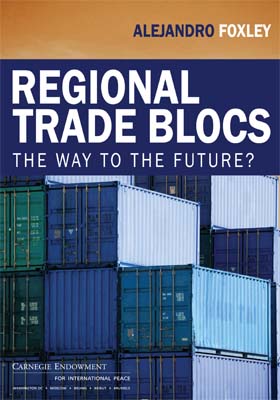With global trade talks stalled and lower demand from major economies that were hit hard by the global economic crisis, regional trade agreements are emerging as a way for middle-income countries to increase trade, spur growth, and lower unemployment rates. In a report, Alejandro Foxley analyzes how three regions—Eastern Europe, Latin America, and East Asia—are increasing trade within their borders and building a broader free trade system.
Using the findings from three vastly different experiences, Foxley says that regional trade agreements work best when participating countries have few political differences, coordinate their monetary and fiscal policies, and embrace globalization. And bottom-up approaches in which companies develop regional supply chains are more effective in improving regional integration than top-down approaches imposed by governments.
Policy Recommendations:
- Eastern Europe: The European Union—which bought 80 percent of Eastern Europe’s exported goods in 2008—can spur further regional growth by implementing policies that reduce deficits and regain lost competitiveness.
- Latin America: With their relatively strong fiscal positions, Latin American countries can expand on existing agreements by ending administrative restrictions and tariffs and coordinating investment in transportation, energy, and telecommunications.
- East Asia: Despite a high number of trade agreements that make it difficult to resolve disputes and navigate the relevant rules, East Asia enjoys a successful trading history. The region should now expand its trade bloc to include China, Japan, and South Korea.
“Pursuing stronger regional trade agreements can help form the building blocks for global free trade deals,” Foxley writes. “Increasing trade will not only help middle-income economies develop but also drive growth around the world as the financial crisis recedes.”
